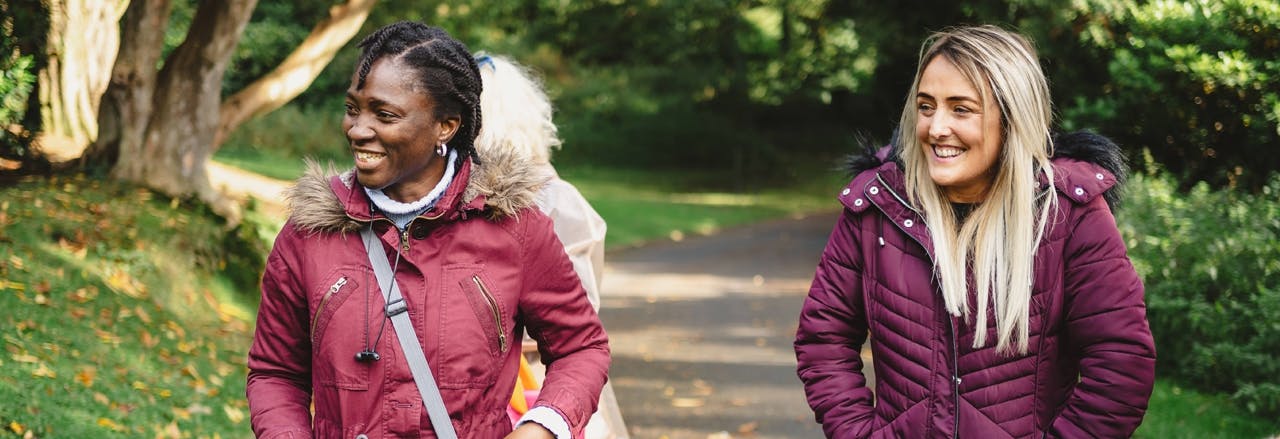This Fund is now closed.
If you have an idea about helping communities to come together The UK Fund is now open for applications.
If you have a Bringing People Together application in progress
If you currently have an application in progress we'll email you.
If you have any questions
If you have questions about the Bringing People Together Programme or to discuss other funding opportunities contact us by email at general.enquiries@tnlcommunityfund.org.uk
You can apply online
We’ll ask you about your idea and how it fits with the areas we are focussing on. We want to know:
- how your project will work across two or more UK countries
- what it is you’re hoping to change
- how you’ll support communities to make long-term change
- how your idea supports connected and thriving communities.
You can see a full list of the questions we’re going to ask you.
We’ll contact you about any additional information that we might need for us to make an early decision about your application.
If you started an application before 13 September 2022
You can access your application in the old system.
If you want more information about this funding
You can attend a virtual event about this funding. We're holding online events on:
- 29 November 2022 – 2-3pm
- 14 December 2022 – 10-11am.
We'll send out a Microsoft Teams invite the day before the events.
If you have any accessibility requirements, you can contact us by email at bringingpeopletogether@tnlcommunityfund.org.uk.
If you’re not sure if you should apply
You can:
- phone us on 0345 4102 030 – lines are open Monday to Friday, 9am-5pm
- contact us by email at general.enquiries@tnlcommunityfund.org.uk
- check if a different fund is better-suited to your project – for example, if your project is about bringing a local community together, you should look at information about other types of funding.
If it's difficult or impossible for you to apply online
You can contact us if you have communication support needs or find it hard to complete the form. We can provide alternative ways for you to tell us about your idea, such as:
- an Easy Read version of the application form and guidance
- a PDF version of the application form
- a British Sign Language (BSL) version of the application form and guidance.
BSL video: How to apply
Watch British Sign Language interpretation of 'how to apply' with English voice over and subtitles (YouTube):
How to share your ideas using a video
When we ask about your project or idea, you can share a video rather than describing it in words.
There are some questions you'll still need to answer with words.
There is guidance about how to share your video in the application form, but if you have any questions, email us at general.enquiries@tnlcommunityfund.org.uk
What happens after you apply
1. We’ll assess your application – there is high demand for funding, so we’ll only be able to take applications through to the next stage that most strongly meet our criteria.
2. We’ll take some early decisions – we’ll aim to tell you if you’re through to the next stage within eight weeks.
3. If you’re invited to the next stage, we’ll ask for more information about your project – we’ll also ask for more details about your organisation and the main contacts for the project. We'll use the information in this form to update our records and carry out some security checks. We’ll also ask you about your proposed budget. If you’re not sure about how much you want to apply for, we can discuss this with you. We’ll aim to tell you the final decision within around four months of being invited to the second stage.
4. We’ll make a final decision – your request will be considered by one of our funding committees.
5. If your application is successful – we'll contact you with the good news! Here’s what happens when you’re awarded funding. We’ll also discuss how we can help you:
- celebrate and promote your funding
- share your learning with others including other grant holders and future applicants to contribute to wider collaborations in these areas.
